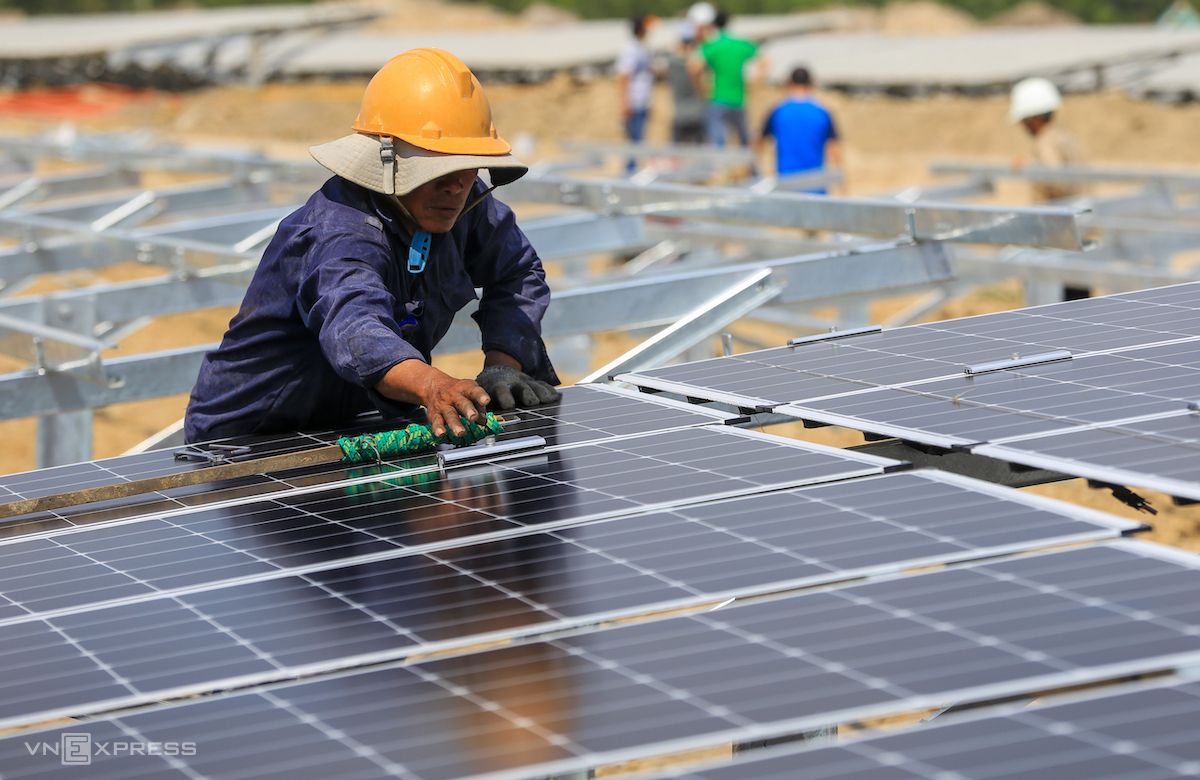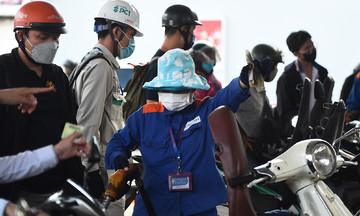The demand for skilled workers has surged as industries transition to sustainable business models, according to Manpower Vietnam's report, "Sustainable Development and New Green Roles."
The report finds that the demand for green jobs is double the available supply. According to a survey of more than 40,000 businesses across 42 countries conducted in July of last year, 91% said they lack personnel with the necessary green skills to achieve their sustainability goals.
 |
Workers install solar panels at a project in Ninh Thuan, 2/2019. Photo: Quynh Tran |
Workers install solar panels at a project in Ninh Thuan, 2/2019. Photo: Quynh Tran
The concept of green jobs is no longer limited to roles involving wind turbine installation or solar panel placement. Manpower categorizes these jobs into three groups. The first group, "Traditional Green," includes specialists and general laborers who directly contribute to environmental protection.
The second group, "Green Plus," requires a broader range of skills, scientific knowledge, and practical experience, contributing directly or indirectly to the environment and ecosystem.
The third group, "Emerald Green," plays a core role in designing sustainable solutions and developing green business models. These are typically senior leaders and managers in administration, finance, and marketing.
The increasing demand for green jobs comes as new sustainability regulations, such as the European Sustainability Reporting Standards (ESRS) and the Corporate Sustainability Reporting Directive (CSRD), take effect. In addition to recruiting green talent, businesses also need to upskill their existing workforce to ensure compliance.
For example, in addition to financial and administrative management skills, today's accountants also need to analyze strategy, control risk, and assess product lifecycle costs. They also need to plan and report according to ESG (Environmental, Social, and Governance) standards, set science-based targets, and avoid greenwashing.
In 2024, the demand for green talent has doubled compared to the previous year. Furthermore, Manpower estimates that more than half of the global workforce needs additional training to perform their current jobs effectively. By job title, the skills of nearly 800 roles will be directly impacted by the green transition.
This skills shortage adds further burden to the transition process. The current gap between the supply and demand for green talent is projected to persist, with a 19% labor shortage anticipated by 2030.
Manpower experts recommend that businesses prioritize "reusing" rather than replacing their workforce. Specifically, they should invest in research and development to equip their employees with the necessary skills. Retraining will be particularly crucial in operationally intensive sectors such as manufacturing, transportation, and retail.
Developing existing personnel also saves time and effort compared to recruiting new talent. Soft skills like effective communication and adaptability are becoming increasingly important, as automation may replace many specialized skills.
Human resource management is a long-term endeavor. HR experts believe now is the time to develop key green positions for the future sustainability of businesses, society, and the economy.
Thuy Truong












